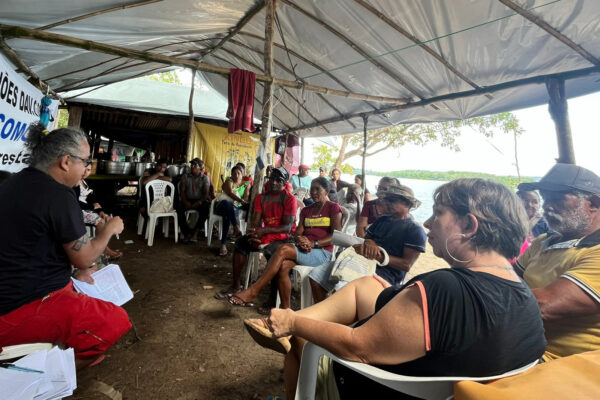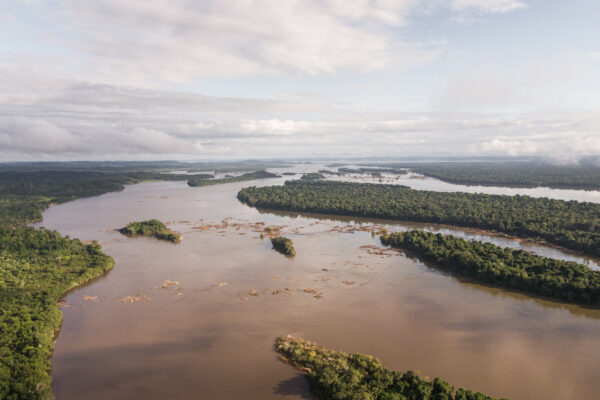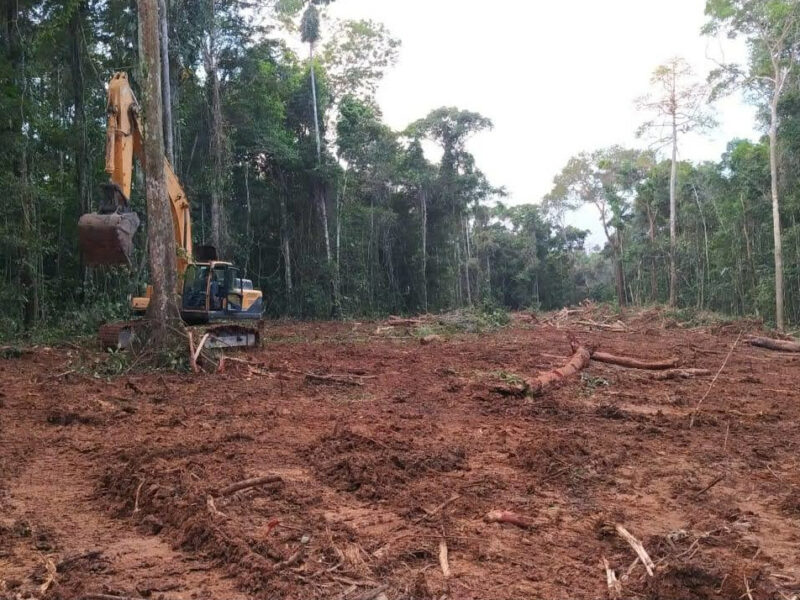Interviews, photos, and video available upon request
Who: Indigenous representatives from several nationalities of the Ecuadorian Amazon who have led their peoples in protecting their rights and territories from the extractive industry at great personal risk and are now advancing a call to protect the Living Forests amid new threats from oil, mining, and illegal logging.
Amazonian Delegates:
Mirian Cisneros, President, Kichwa People of Sarayaku, Ecuador
Alicia Caihuiya, Waorani Nation of Ecuador
Gloria Ushigua, Sápara Nation of Ecuador
Why: The lives, lands, and cultures of indigenous peoples in the Amazon are under assault. Oil drilling in Yasuni National Park, a UNESCO Biosphere Reserve that is home to the Waorani and two indigenous peoples-the Tagaeri and Taromenane-living in voluntary isolation, is already underway. The Ecuadorian government plans to open up six million acres of roadless pristine rainforest to new oil extraction threatens the Kichwa of Sarayaku, and the Sápara are facing drilling plans by a subsidiary of the China National Petroleum Company.
The delegation and their colleagues have received death threats and other forms of harassment for their outspoken opposition and organizing efforts to stop planned industrial extraction. The three leaders traveling to the U.N. met recently with Ecuadorian President Lenin Moreno and presented policy demands for an end to resource extraction and proposals for the permanent protection of their territories.
One such proposal is Sarayaku’s Kawsak Sacha or “Living Forest” proposal, which seeks to establish a new category of protection for biodiversity and culture – a sacred territory free from industrial extraction – which is gaining momentum as the world recognizes the critical role of indigenous peoples in conserving standing forests and keeping fossil fuels in the ground.
The United Nations Permanent Forum on Indigenous Issues (UNPFII) is a high-level advisory body to the Economic and Social Council. The Forum was established to deal with indigenous issues related to economic and social development, culture, the environment, education, health and human rights.
When & Where:
17th Session of the United Nations Permanent Forum on Indigenous Issues (UNPFII)
Date: April 16-27, 2018
Location: United Nations Headquarters, New York
Theme: “Indigenous peoples’ collective rights to lands, territories and resources”
Quotes:
Mirian Cisneros, President of Sarayaku, said:
“The threats we are suffering and the government plans for our territories violate our most basic rights. There has been no consultation nor consent for any of the plans announced for our territories. We reject them outright, and we demand that the government respect and abide by the UN Declaration on Indigenous Peoples and provide guarantees for the full enjoyment of our collective rights.
“For us, all beings have life. Our forest is full of life. With extraction, peaceful well-being will end. There will be no future for humanity or our future generations. We call on the governments of the world to stop these corporations from continuing their unchecked extractivism and to stop them from destroying our living forest. It is our obligation and yours to preserve what we have left for the well-being of all humanity and for the future generations to come.”
Casey Box, Executive Director of Land is Life, said:
“As the international community struggles to address the world’s most pressing issues – climate change, destruction of ecosystems, food security, global poverty and women’s rights – it is critical that the world recognize that these challenges will be difficult, if not impossible, to address without the involvement of Indigenous Peoples. For millennia Indigenous Peoples have developed sustainable ways of living that are based not on profit but on reciprocity with nature. As our climate continues to change, and our shared resources are threatened, we must recognize what happens in the forest affects everyone on earth.”
Leila Salazar-López, Executive Director of Amazon Watch, said:
“Considering that global climate chaos is here and global experts are warning that three-quarters of the world’s fossil fuels must be kept in the ground to avoid catastrophic climate change, protecting the Amazon is a greater priority than ever. We stand with indigenous peoples, women defenders of the Amazon, and allies to stop Amazon destruction, advance indigenous solutions, and support climate justice.”













